Department of Child Care and Social Work and NORWEL invite to a series with open lectures.
Wednesday 9. November:
09.15–11.15: Professor Robert Lonne, Queensland University of Technology/prof II NTNU
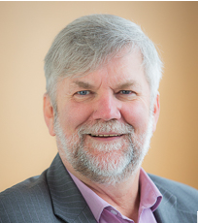
Lesson 1: Families – private and sacred? A critical examination of the basis for and implications of state interventions to protect children
This lecture outlines some of the key historical antecedents in child welfare including the UNCRC, and critically examines the role and tensions of the state in private family lives. Dominant discourses in child protection and child welfare are illustrated, and the outcomes of intervention are unpacked regarding whether they meet the public expectations. Public health approaches at prevention are outlined including need and the provision of help. To what extent are families private and sacred? Some small group learning activities are used.
12.15–14.15: Professor Robert Lonne,Queensland University of Technology/prof II NTNU
Lesson 2: Social work and the diverse roles and tensions in its functions within the various national contexts
During this session we examine and reflect upon the nature of social work, its core values, roles and methods, and the extent to which these fit within ‘international social work’ in its many and diverse locations and forms. The historical antecedents are introduced, but the focus is on the contemporaneous context in a global world where the drivers of change are sometimes at odds with the social work profession’s ambitions. Altered roles and functions within a neo-liberal world are discussed with respect to how social work is configured institutionally in various countries. Some small group learning activities are used, and students are encouraged to unpack and reflect on their own histories and viewpoints.
14.30–15.45: Professor Tony Ghaye, FRSA, Loughborough University in London
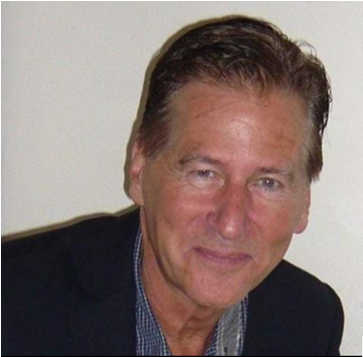
Are we asking the right social work questions?
In social work I suggest we need to replace questions, “what’s wrong?” and “how can we fix it?” with two better questions ……...”What’s possible here?” and “Who cares?”
This presentation illuminates some of the things that the new psychologies of human significance and positive psychology offer those who practice and research in social work and who wish to promote human flourishing and wellbeing. I will integrate these ‘ologies with the principles and processes of appreciative inquiry. Taken together they will provide a platform to present a research methodology called PAAR (Participatory and Appreciative Action Research). This was originally developed by Ghaye et al, (xxx) in the High Arctic and can be done at individual, family, organisational and community levels. Arguably very appropriate if we see social work as an ecosystem! PAAR doesn’t start with problem-finding, but with asset-discovery. It doesn’t focus its attention on what we want less of in our lives, but what we want more of! It starts by asking a different question. We travel in the direction in which we ask questions!
Foucault, a key postmodern philosopher, argues that science, in different time periods, develops what we might term regimes of truth about human nature. Foucault’s work includes critical analyses of how today’s medical conceptual frameworks define and determine modes of human thought and practice. Arguably this is very relevant for social work. Seligman and Csikszentmihaly, suggest that contemporary psychology gives priority to a conception of human beings that places too much attention on pathology, faults, weaknesses and dysfunctions. In other words, it is a medical-oriented psychology, or what might be called a psychology of repair. So, what kind of psychology is appropriate for modern social work? Rather than taking the medical-oriented model as given, in this presentation I will argue that people should be conceptualized and understood as having inherent potentials for developing positive character traits and strengths which provide opportunities for optimizing life chances, thriving and flourishing. PAAR is offered as a way that embraces this. I will show how it might be utilized to research the question, “What does it mean to feel you matter?”
Thursday 10. November:
09.15–11.15: Professor Ilse Julkunen, University of Helsinki
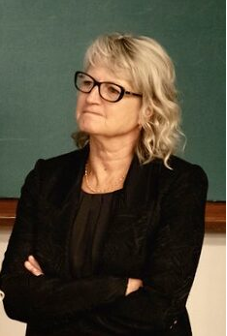
Social work and the question of Transformation – theoretical and research perspectives
In this lecture I draw attention to current tendencies that shape the landscapes for social work. Current tendencies are captured by an increasing political economic and environmental interdependency which flows between and further beyond nation states. Harrikari and Rauhala’s (2018) hypotheses are that an accelerating transformation process of social work is currently going on in the Western societies – a transition from a nationally anchored social work towards uncertainties in the forefront of complex transnational phenomena and tendencies. Policy and practice approaches that might have worked in the past are no longer seen as relevant in the new landscape of diversity of peoples, place and changing identifications and expectations. Questions like How do we deal with eco-social change and diversity and superdiversity in social work becomes critical for social work. In this presentation I will illustrate the significance of understanding of glocal experiences and how this relates to a new complexity drawing on some empirical studies on urban social work. It pays attention to transformation and transformative agency and practice in doing research in social work.
12.15–14.15: Professor Vishanthie Sewpaul, University of Kwazulu-Natal, South Africa
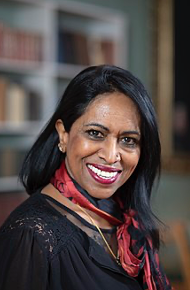
Global social problems and social work: Personal mastery for professional capabilities and transformative societies
Global social problems like racism, sexism, xenophobia, narrow nationalism, neoliberal racialized capitalism, and climate change have a way of seeping into the lives of individuals, families and communities. In a world divided, the triad of neoliberal capitalism, new managerialism and science of the logical positivist tradition, rooted in Western hegemony, have pernicious consequences for social service professionals, and for the people who they engage with. The deep fissures of the social fault-lines, based on criteria like race, class, gender, sexuality, (dis)ability, nationality and socio-economic governance implode a range of taken-for-granted, common-sense assumptions. A decolonized and emancipatory praxis, which must underscore education, research and practice, provides the framework for countering these dominant discourses and practices, with a simultaneous focus on the awakening of both individual and societal consciousness, as reflected in the 2014 IASSW/IFSW Global Social Work Definition and the IASSW 2018 Global Social Work Statement of Ethical Principles. Conceptualising social work as a humanized science and a humanized professionalism is an aspiration that can be achieved by making Ubuntu; being for the Other and deliberative, emancipatory action the normative of the profession. We are at a conjectural and significant moment in world politics that calls for a politics of resistance and of a politics of hope. In this lecture we will, inter alia, discuss the nexus between individual and societal consciousness, and how the power of love, kindness, gratitude, compassion, and forgiveness, for self and other, can be elevated to broad socio-political forces in the interests transformative societies.
14.30–15.45: Ass professor Gro Jensen, The Arctic University of Norway
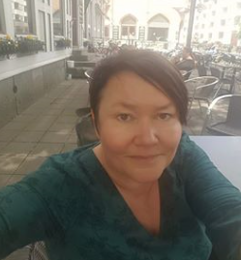
Conditions and challenges of youths participation in child welfare
My PhD study is examining a Norwegian developed social network approach called “Flipover”. Flipover emphasizes to increase participation for youth in child welfare services. The basis for the study is qualitative interviews with social workers and youth, in addition to observations in meetings for child welfare, young people and their social network over a two-year period. Critical conditions for participation are how the different forms of power in child welfare services affect interaction with young people and create challenges. Child welfare services as a system reflects institutional power with its laws, routines and approaches for problem solving. The power in child welfare services is also related to the asymmetric positions for the participants, and the professionals’ power to define clients and their problems. Youths´ and the parents` willingness to cooperate seem to be a central condition for increased participation in child welfare services.
Friday 11. November:
09.15–11.15: Ass professor Rita Sørly, UiT The Arctic University of Norway
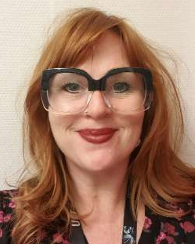
Scientific approaches to narratives in social science
People tell stories, and create narratives, enrichened with explanatory and evaluative frameworks that weave people, places and events together, defining people and ourselves in time, place and in relation to others. People organize their storytelling according to culturally available narratives and plots. Through multiple storytelling, narratives become accepted or contested as evaluative versions of the past, the present and the future. Stories take on moral perspectives, explaining not only what happened and what it means, but also what should have happened or what the stories should mean. Stories are not windows of an objective reality, but rather co- constructions connecting people. Different groups have different dominant narratives they relate to and define as truths.
In this lecture we will take a closer look at narratives, and different approaches to narrative research within social science. A narrative research project on Indigenous people and mental health in a Sami context will be presented through a storytelling lens. We ask; why do scientific approaches to stories matter? Do dominant narratives and small stories give new perspectives to research in social work? Can we receive knowledge from stories? And who’s stories matter?
12.15–14.15: Professor Walter Schönfelder, UiT The Arctic University of Norway
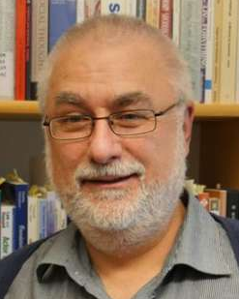
Analyzing inequality – constructivism and social realities
The preferred methodological research strategies in the subject field of social work are designed as qualitative inquiries. In my lecture, I look at the premises for qualitative research from a constructivist methodological perspective. I then look at the question of how to regard materiality from a constructivist perspective. In the final part of my lecture I address some implications for analyzing inequality with a constructivist methodological point of departure.
14.30–15.45: Professor Eva Josefsen, UiT The Arctic University of Norway

Social work and Indigenous perspectives in social science
Indigenous perspectives in social science highlight indigenous people rights in social work policies, services, and practices, and discuss the indigenous and non-indigenous positions. We will depart from perspectives themed amongst other invisibility/visibility, assimilation, ethnicity, and power.
Sámi rights in public welfare services depart from international human rights and national law and adopted political goals. Using indigenous perspectives the implementation gap between legal rights and social work in practice can be highlighted.
The lecture will revolve around the question: Should social work be indigenized, and if so, why, and how? Are there limits for Sámi rights in social work, and if so, what are those limits?
Here you can read more about NORWEL (Norsk forskerskole i sosialt arbeid og barnevern)
Slutter: 11.11.22 kl 15.45